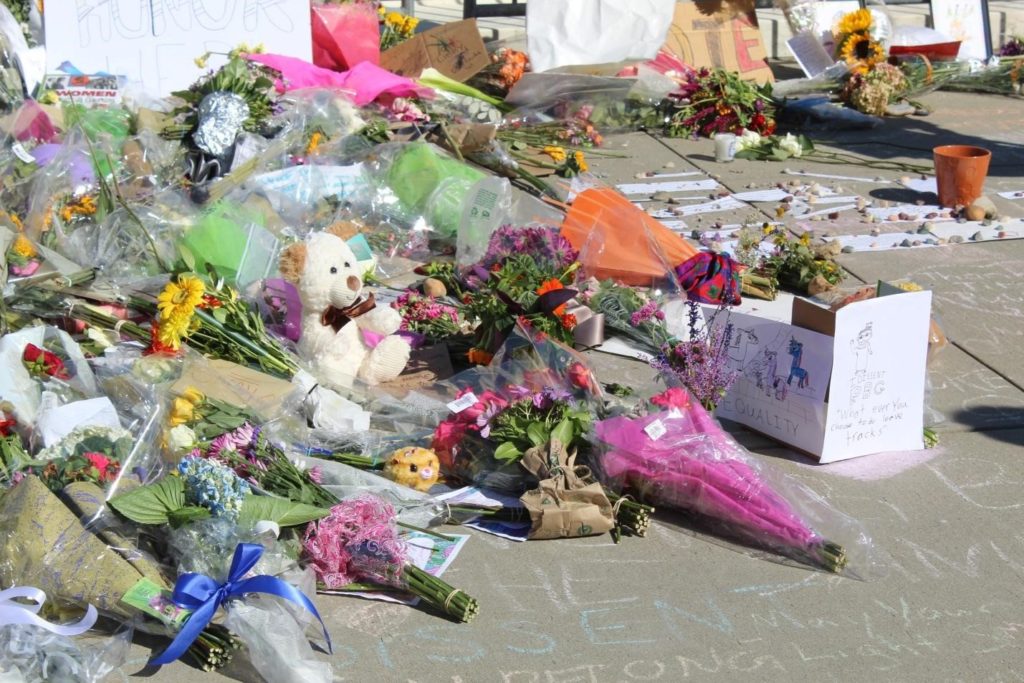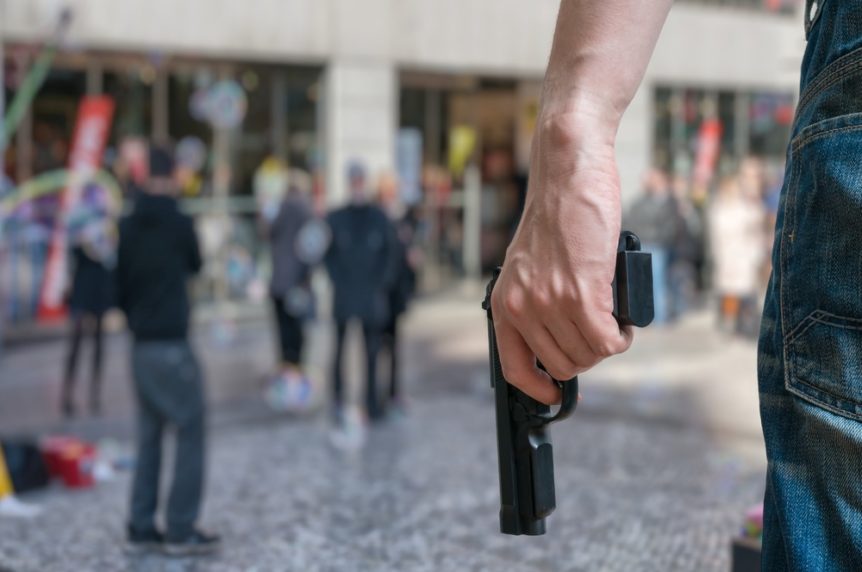The country has witnessed a rising number of mass shooting incidents in Texas, Georgia, Indiana, Minnesota, Nevada, and Colorado in recent years. In 2019 and 2020, there were a total of 417 and 610 reported mass shootings, respectively.
This year alone, the US has averaged roughly one shooting incident a day, and if past mass shooting statistics are anything to go by, that number is expected to rise in the coming months.
As these incidents become deadlier and more frequent, more questions are being raised on the potential compensation victims of gun crimes are entitled to and who the liable parties in such situations are. The answers may not be as cut-and-dry as you might expect.
Here’s everything you need to know.
Mass Shooting Definition
What exactly constitutes a mass shooting? The definition used ultimately depends on the data source in question. The Gun Violence Archive, for instance, defines it as an event where at least four or more people, excluding the shooter, are shot or killed. Other sources have a higher victim threshold for a shooting incident to be classified as a “mass shooting.”
The 2012 Investigative Assistance for Violent Crimes Act defines “mass killing” as an incident where at least three or more people are killed in a single event. This definition, however, does not take into account individuals who get injured and ultimately survive the shooting.
Most metrics point to the fact that mass shooting incidents are on an upward trend. However, they still make up a negligible portion of all the recorded gun deaths that occur in the country, despite the attention drawn to incidents such as the tragic 2017 Las Vegas mass shooting.
Who Is Held Liable After a Mass Shooting Incident?
According to the American Bar Association (ABA), the individuals and businesses that could potentially be targeted in a civil lawsuit after a mass shooting incident vary widely depending on the circumstances surrounding the event in question. Liable parties may include:
- Employers at the shooter’s place of work
- Event organizers/promoters
- Family members and/or friends of the shooter who were aware of the shooter’s intentions but failed to take appropriate steps to avert their plan
- Gun retailers where the shooter bought their weapons, particularly if they were illegally acquired
- Law enforcement authorities for failing to intervene appropriately or investigate an active shooter who displayed violent or suspicious behavior in the time leading up to the event
- Mental health providers such as psychiatrists who fail to act on statements made by their patients before a shooting incident
- Operators/owners of the businesses/premises where the shootings occur
- Organizations that failed in their duty to submit information to law enforcement authorities to disqualify the shooter from being allowed to own a firearm
- Private security companies
- Straw buyers if the firearm used by the shooter was purchased on their behalf by someone else
Statistics have shown that perpetrators had exhibited suspicious behavior in more than 75 percent of mass shooting incidents and made concerning remarks beforehand.
It is, therefore, the responsibility of an employer or a venue owner/operator to identify a potential threat and employ risk reduction or prevention protocols to avert that threat.
The absence of such protocols increases the likelihood of a venue/business/employer/school board being held liable for a mass shooting.
The 10 Deadliest Mass Shootings

The death toll from the infamous 2019 El Paso shooting was 23, making it one of the deadliest mass shootings in recent times. However, it’s not the only one. Below is a list of mass shooting incidents with some of the highest reported death tolls.
- The Harvest music festival in Las Vegas, NV, in 2017: The incident left 59 people dead and hundreds of other Vegas shooting victims injured in the attack.
- Pulse nightclub in Orlando, FL in 2016: 49 people died and 50+ injured.
- Virginia Tech in Blacksburg, VA in 2007: 32 people were killed, and 17 others injured.
- Sandy Hook Elementary School in Newton, CT in 2012: 26 died in the attack.
- First Baptist Church in Sutherland Springs, TX in 2017: 26 people lost their lives.
- The El Paso shooting in TX in 2019: 23 people were killed, and 26 others injured in the Walmart incident.
- Luby’s Cafeteria in Killeen, TX in 1991: 23 people died in the incident.
- McDonald’s in San Ysidro, CA in 1984: 21 people died.
- Marjory Stoneman Douglas High School in Parkland, FL in 2018: 17 people died in the shooting.
- The University of Texas Tower in Austin, TX, in 1966: 16 people were killed in the incident.
It is worth noting that two of the incidents on the list above were mass school shootings.
MGM Lawsuit
MGM Resorts International, the parent company of the Mandalay Bay Hotel, Las Vegas (the venue of the Harvest music festival where 59 people lost their lives and hundreds of others were injured in a mass shooting incident in October 2017), was sued by more than 4,000 plaintiffs citing the hotel’s lax security protocols as being the reason why the shooter was able to gain access to the venue.
Two years later, the company agreed to pay $800 million in the MGM lawsuit settlement to compensate the victims and their loved ones for the losses, medical costs, emotional pain, and suffering they experienced in the wake of the shooting.
El Paso Shooting Lawsuit
Following the Walmart incident of 2019, the El Paso shooting victims filed lawsuits against the shooter, his kin, and the owner of 8chan, the online message forum where the perpetrator had posted alarming racist remarks before opening fire on shoppers at Walmart.
The lawsuit accuses the defendants of acting negligently by being aware of and encouraging hate-motivated violence. Other victims of the shooting have also sued Walmart, accusing the retail giant of negligence which resulted in the loss of lives.
Talk to an Experienced Attorney
If you or a loved one was a victim in a mass shooting incident, it is within your rights to recover compensation in a lawsuit against the liable parties.
However, such cases are marred with complicated liability issues that continue to unfold in the justice system to date. The best thing to do would be to get in touch with an experienced attorney as soon as possible to explore all the available avenues for legal redress.
Do you have any legal questions for us? Chat online with a Laws101 attorney right now.
